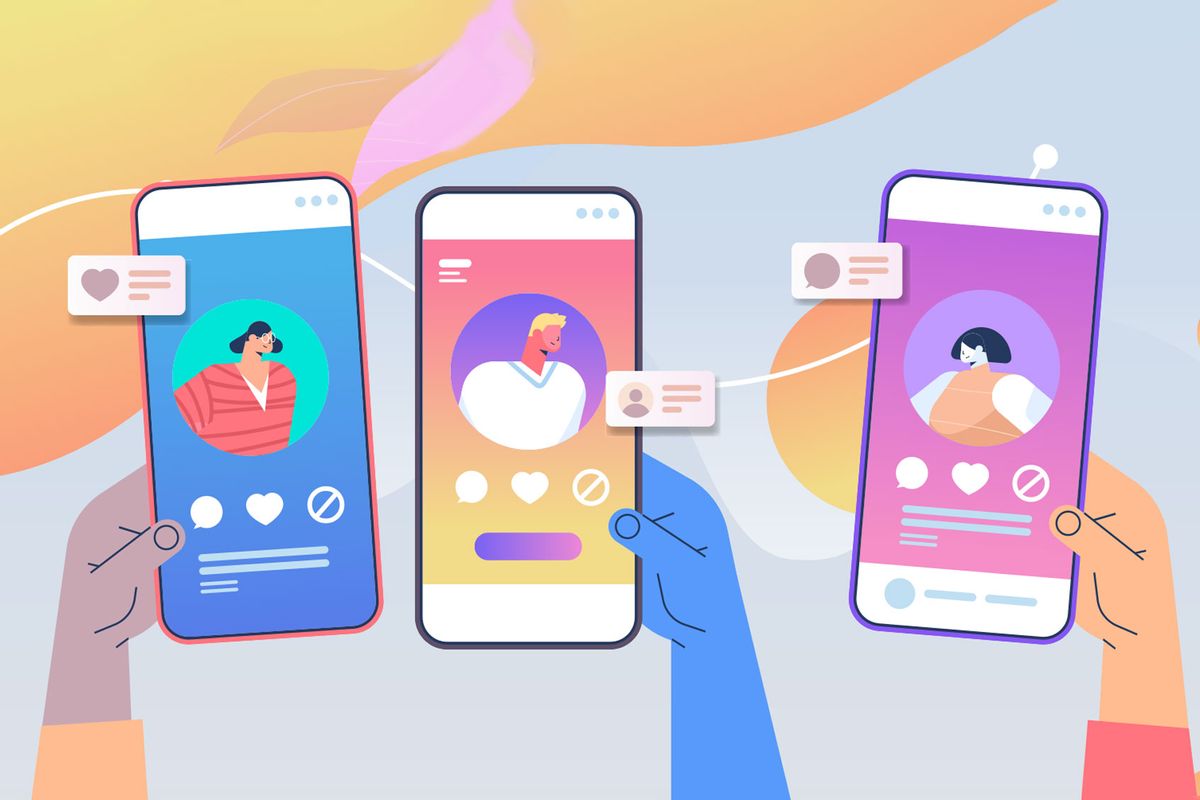In the span of a few decades, online dating went from the fringe to the mainstream; now, more than half of Americans say relationships formed through online dating can be just as successful as those forged in real life. As of 2019, meeting online was the most popular way for couples to find each other, according to a Stanford study. With such a large pool of singles, there's a cottage industry of sorts for online dating advice. Some singles even hire ghostwriters for the job of penning their profiles.
The study analyzed what exactly a profile's text needed to do to be perceived as "original."
Now, science has turned its eye towards the study of how to stand out in online dating. A new study in the journal PLOS One offers insights into how one can create the most successful dating profile. The name of the game, it turns out, is originality.
"The first goal was to examine whether the perceived originality of authentic online dating profile texts affects online daters' perceptions of attractiveness," the authors explain, adding that their results confirmed that online daters do indeed prefer partners perceived as original. More specifically, they enjoyed traits such as intelligence, a sense of humor and creativity. Online daters were particularly drawn to profiles where the language itself stood out from the generic.
In addition, the study analyzed what exactly a profile's text needed to do to be perceived as "original." Intriguingly, there were specific quirks that consistently proved to be "attractive" to line daters. For instance, profiles that used clever metaphors received highly favorable responses, as did those which included concrete and easily verifiable self-disclosures.
"Taken together, our results suggest that perceived originality in profile texts is manifested in both meaning and form, and is a balancing act between novelty and appropriateness," the authors write.
The corresponding author for the study, Dr. Tess van der Zanden, told Salon by email that one limitation was that most of the subjects were elderly.
"Our sample consisted of members of online dating platforms," van der Zanden explained. "While this is a strength of the study, it should at the same time be mentioned that the average age of the respondents was around 65 years. This is because we collaborated with the dating platform 50PlusMatch, which is a specific platform for active people of 50 years or older. Given this sample, we can thus not generalize our findings and draw any conclusions about general effects of perceived profile text originality on impression formation across all ages, as the participant's mean age was 63.5 years."
Want more health and science stories in your inbox? Subscribe to Salon's weekly newsletter The Vulgar Scientist.
As anyone who has struck out online can confirm, this is easier said than done — and the authors unpack the exact reasons why that is the case. For one thing, even though online daters want to stand out, they also need to remain in the realm of "appropriate." In addition to following obvious rules about avoiding abusive or overly-sexual language, this also means coming across as someone who is generally approachable. A profile that seems "weird" may be off-putting, despite standing out from the pack.
"Profile texts that do not conform to existing conventions, such as those that do not contain any personal information, negatively violate (social) expectancies and norms," the authors write. "Such unexpected behavior can, in turn, negatively affect impression formation, for instance with regard to general favorability." People want their mates to be memorably different, "but only so long as it happens within the boundaries of appropriateness." As such, online daters must find a way of learning about which behaviors are expected in their Internet forums, and to abide by those rules of etiquette accordingly.
"The vast majority of profile texts still appear cliché-ridden and generic and show a high level of predictability."
Yet being just one more animal in the herd means that you run the risk of being ignored completely. Only original profiles avoid that fate — but original profiles are most easily written by original people, and unfortunately not all of us are quirky, unique snowflakes.
"The vast majority of profile texts still appear cliché-ridden and generic and show a high level of predictability," the authors point out. "Most profile owners present similarly (selective) information in which common attributes, such as self-descriptions of being spontaneous and kind, and common interests and activities are emphasized (e.g., love to laugh and travel, like to sip wine by fireplaces, go for romantic strolls on the beach)."
To the extent that any formula exists for writing profiles that balance originality with appropriateness, it can be boiled down to intelligence, humor, and being able to self-disclose. This does not mean that you should be condescending or arrogant (grammar snobs, for instance, do not do well in online dating), but that you should display non-threatening intelligence through use of metaphors and by speaking in an informed, confident way about matters other than yourself.
"Invest time in both the profile picture and text, as our research (other studies) show that people actually pay attention to profile texts as well and that what is written in a profile and how this profile is written affects impression formation," van der Zanden explained. "It is recommended to avoid language errors and to try to make a profile stand out by using metaphors and self-disclosure that is concrete (something that can be visualised and is more unique for you, such as your favorite type of holiday and/or country instead of mentioning that you like to travel)."
As the authors put it in the study, "Our results reveal that primarily stylistic and self-disclosure features predicted higher text originality scores. It seems that profiles that were perceived as more original were more likely to contain fixed and novel metaphors (stylistic features), and more and concrete self-disclosures (self-disclosure features). Finally, profiles deemed original were less likely to be (fully) written from a self-perspective (perspective-taking feature)."



Shares